Agenda 2030
| Publication Cover |
Title |
|---|---|
 |
Information and Communication Technologies: Prospects for Promoting Gender Equality in the Arab Region E/ESCWA/ECW/2019/3 The present report examines how information and communication technology (ICT) can be used as a means of implementation to accelerate the achievement of Sustainable Development Goals (SDG) 5, and... |
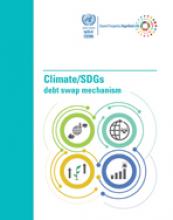 |
Climate/SDGs Debt Swap Mechanism E/ESCWA/CL3.SEP/2020/INF.3 Public budgets in the developing countries of the region are pressed due to rising external debt and debt service, which risks expenditure on climate action and for achieving the SDGs. The... |
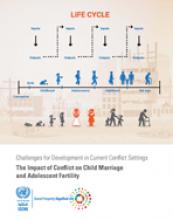 |
The Impact of Conflict on Child Marriage and Adolescent Fertility E/ESCWA/ECRI/2019/2 It is universally agreed that child marriage is a core development and human rights issue, as it hinders the achievement of the 2030 Agenda for Sustainable Development and its Sustainable... |
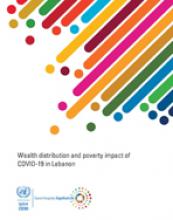 |
Wealth distribution and poverty impact of COVID-19 in Lebanon E/ESCWA/CL3.SEP/2020/TP.8 Lebanon is de facto experiencing the impact of three reinforcing growth shocks: a long-term recession post-Syrian crisis as a result of gradual decline in tourism receipts and private investment... |
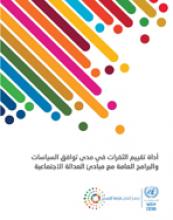 |
The Social Justice Policy Gap Assessment Tool (PGAT) E/ESCWA/CL2.GPID/2020/TP.13 The Policy Gap Assessment Tool aims to analyze the extent to which the principles of social justice are integrated into public policies and development programs in the Arab region by identifying... |
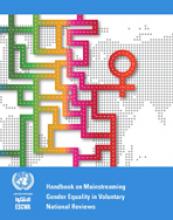 |
Guidelines for Mainstreaming Gender Equality in Voluntary National Reviews E/ESCWA/ECW/2019/TP.1 This guide aims to support stakeholders in mainstreaming gender equality and women’s rights in Voluntary National Reviews (VNRs) on progress made in the implementation of agenda 2030 and the... |
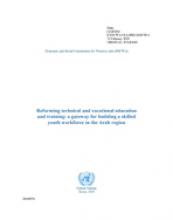 |
Reforming Technical and Vocational Education and Training: A Gateway for Building a Skilled Youth Workforce in the Arab Region E/ESCWA/CL2.GPID/2020/TP.4 The technical paper scrutinizes high youth unemployment rates prevalent in the Arab region from the perspective of labour supply. More specifically, it examines technical and vocational education... |
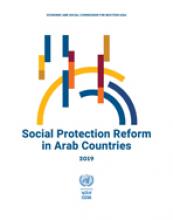 |
Social Protection Reform in Arab Countries E/ESCWA/SDD/2019/1 Social protection systems, their design and their extent, are shaping social cohesion, social justice, the structure of the labour market, the prevention and alleviation of poverty, as well as... |
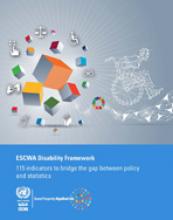 |
ESCWA Disability Framework: 115 indicators to bridge the gap between policy and statistics E/ESCWA/SD/2019/TP.3 ESCWA Disability Framework: 115 indicators to bridge the gap between policy and statistics, is the first three-dimensional disability framework that maps disability-related indicators to three... |
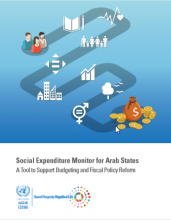 |
Social Expenditure Monitor for Arab States: A Tool to Support Budgeting and Fiscal Policy Reform E/ESCWA/EC.6/2019/8/Rev.1 Targeting public expenditure in line with social development priorities and macro-fiscal sustainability remains a challenge for most Governments in the Arab region. Budget allocations that... |
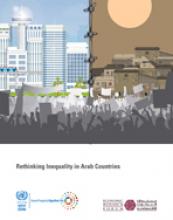 |
Rethinking Inequality in Arab Countries E/ESCWA/EDID/2019/2 The Rethinking Inequality in Arab States report fills knowledge gaps about inequality in the Arab region, using a multidimensional approach that focuses on non-income dimensions: Health,... |
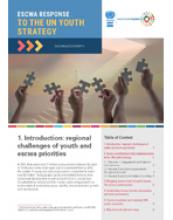 |
ESCWA response to the UN Youth Strategy, Social Development Bulletin, Vol 7, No. 2 E/ESCWA/SDD/2019/TP.2 Young people under 30 represent 60% of the total population of the Arab region today. The number of youth aged 15 to 24 is expected to increase from 71 million in 2015 to 92 million in 2030. This... |
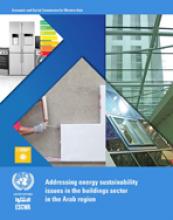 |
Addressing energy sustainability issues in the buildings sector in the Arab region E/ESCWA/SDPD/2018/TP.5 The report focuses on energy efficiency in the buildings sector as a major opportunity for substantial progress towards Sustainable Development Goal (SDG) 7 and provides an evaluation on the... |
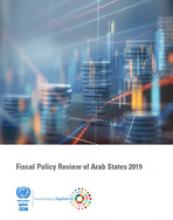 |
Fiscal Policy Review of Arab States 2019 E/ESCWA/EDID/2019/WP.20 This fiscal review is first in the series following the ESCWA 2017 flagship report “Rethinking Fiscal Policy for the Arab Region”. A major focus of this fiscal policy review 2019 is to create a... |
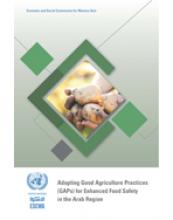 |
Adopting Good Agriculture Practices (GAPs) for Enhanced Food Safety in the Arab Region E/ESCWA/SDPD/2018/TP.6 Food safety, which is an integral part of food security, is essential for protecting consumers from the hazards of foodborne illnesses that may be introduced at different stages of the food value... |
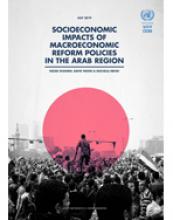 |
Socioeconomic Impacts of Macroeconomic Reform Policies in the Arab Region E/ESCWA/EDID/2019/TP.1 The technical paper aims to test that hypothesis by evaluating Tunisia and Egypt’s experiences with neoliberal adjustment against the SDGs. The UNESCWA expert group meeting Towards... |
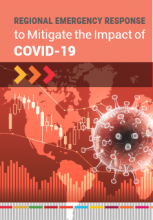 |
Socioeconomic Impact of COVID-19: Policy Briefs E/ESCWA/2020/INF.1 A decade marked for accelerated action and delivery towards sustainable development has... |
 |
ESCWA Technical Cooperation Menu: Delivering a Broad Range of Expertise to Member Countries E/ESCWA/PPTCD/2011/Brochure.1 This document lists a variety of programs that are responsible of delivering a range of expertise to member countries. It starts by explaining the role of Technical Cooperation Program that... |
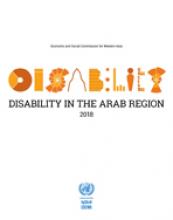 |
Disability in the Arab Region 2018 E/ESCWA/SDD/2018/1 This report presents and analyses statistics relating to the demographic characteristics and socio-economic situation of persons with disabilities in the Arab region. It is based on data from... |
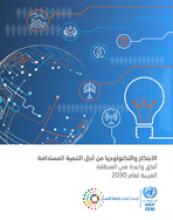 |
Arab Horizon 2030: Innovation Perspectives for achieving SDGs in the Arab Region E/ESCWA/TDD/2019/2 The publication explores innovation approaches and technological trends that bolster inclusive sustainable development and the achievement of SDGs in the Arab region by: ... |





